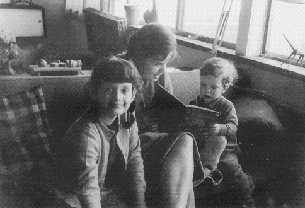V
The positive question for us is not so much whether we are losing our sense of belonging as whether we can help build something that is worth belonging to. Perhaps that has always been the major social question for men and women shaped by the big discourse. For just as freedom that has not been fought for is lightly cast off, so belonging that does not require the building and the maintaining of organizations worth belonging to is often merely a yearning for a new bondage.
To really belong, we have got, first, to get it clear with ourselves that we do not belong and do not want to belong to an unfree world. As free men and women we have got to reject much of it and to know why we are rejecting it.
We have got, second, to get it clear within ourselves that we can only truly belong to organizations which we have a real part in building and maintaining, directly and openly and all of the time.
And we have got, third, to realize that it is only in the struggle for what we really believe, as individuals and as members of economic, political, and social groups, that the sense of belonging befitting a free person in an unfree world can exist. In such a world, only the comradeship of such a struggle is worth our loyalty; and only to such truly human associations as we might create do we, as rational people, wish to belong.
To William and Virginia Miller, from Palisades, California, undated (July 1954)
Dear Bill and Bucky:
I know I should have written but many things have happened and have not yet added up to much. The trip out was a Porsche trip, which means very fast and very limousinish. You cruise at 85 to 100
The book, the book: it comes slowly I suppose but it does come. Ruth is pretty well sticking to one chapter after the next right thru and I am leaping around a bit but steadying down now to the general sequence. It would do no good for either of us were I to attempt to let you know in [a] letter the shifts and strategies we are coming to, but it may be enough to say that the book will show a much more unified upper class and power elite than even I had at first thought possible. And there is one thing I do want to tell you, although [I] won't try to explain it too fully. In brief it is this: for the very rich and for the executives, the terms entrepreneur and bureaucrat just won't do. Those are middle class words and retain too much middle class imagery and perspective. They are all right for middle class levels of economic life; they make no sense and are misleading when used for the very top guys. I know we have all used them, and coded stuff into them. But you know what made it clear to me that they were no damn good: reading carefully the notes I took on the write up of your data that this Keller girl did.
[97] This must be Suzanne Infeld Keller, author of Beyond the Ruling Class: Strategic Elites in Modern Society (New York: Random House, 1963), as well as other works.
Her analysis is a good careful statistical analysis: no one could do much more with that data from a statistical point of view. But it just isn't so. It just doesn't give you how and why those guys got where they were, and it gives a very false image of what they actually do when they are there. When you wrote those words in several articles you did,[98] Miller had written several articles for the Reporter, including "Can Government Be Merchandised?" (27 October 1953); "It May Be Box Office, But Is It the Bible?" (29 September 1953); and "Tyranny of Virtue, the Emptiness of Tolerance" (16 March 1954). Other relevant articles by Miller might be "American Historians and the Business Elite," Journal of Economic History (November 1949); and "The Recruitment of the American Business Elite," Quarterly Journal of Economics (May 1950).
which I come to admire more and more, you could get away with those words because they were embedded in knowledge and cases about what the hell went on, but she doesn't know. So in the chapter on the very rich, I am tryingDid you see in last Sunday's Times Book Review the piece by Ed Saveth? God, how disgusting. You are mentioned OK though.
[99] "Exit ‘Robber Baron & Co.,’" New York Times Book Review (4 July 1954): 6–7, 12. Ed Saveth had discussed the approach to economic history taken by Allan Nevins in his biography of John D. Rockefeller Sr. and his history of the Ford Motor Company: "Thorstein Veblen's predatory captain of industry, all tooth and claw, is almost unrecognizable in the portraits of the industrialist as philanthropist." Saveth wrote that this revision of historical perspective led to greater truth about the role of American business. He also respectfully mentioned a collection, entitled Men in Business, edited by William Miller, and The Age of Enterprise by Thomas Cochran and William Miller.
Read Hofstadter's mimeo chapters, all but front and tail, which he hasn't sent yet. Please don't tell him I said so, for what good is it, but my god it is thin stuff: nothing beyond Walling and Josephson and Griswold on farming and, if I may say so, a good bit of old Mills on status and all, but no acknowledgment but, hell, who cares.
Will try to drop a little A-bomb on them all with Elite but hell they will all ignore it, except maybe five or six hundred people who will love me for it. And that is enough. Who wants to be loved by masses, or by mass-like minds?
Let me know how it goes, Bill.
Yours as ever, Who else? [unsigned copy]
When The Power Elite was published in April 1956, its description of interlocking power relationships between the economic, political, and military elites in the United States was far from accepted knowledge; Dwight D. Eisenhower did not make his famous speech about the dangers of the growing military-industrial complex until he left office in January 1961.
To Leo Lowenthal, from Pomona, New York, dated May 20, 1955
Friday nite
Dear Leo:
How in the world can you know anything about promotions and all, and yet you always know the quote interhuman unquote realities of everywhere. But the budget is all in already. And I got a letter saying for your wonderful contribution we give you this little raise and you are still associate professor and it is signed by Kirk. So what the hell goes? Could Leo be wrong? Of course he could be wrong, on this at least. Anyway we don't think or talk about nasty things like money anymore. We are above that, or rather below that.
Today I sent you book rate a dittoed copy of "The Power Elite." I waited at first and worried about sending it to you because you are way out there among so many enemies
[100] Lowenthal was a fellow at the Center for Advanced Studies in the Behavioral Sciences, Stanford, California, 1955–56.
and I do not want this copy read by anyone but friends or talked about because I am still very much changing it, maybe drastically, and I do not want guys who have read it talking bad about the poor little thing to other guys who haven't had a chance to read it and can't yet go down to the bookstore and put up their 5 bucks in my defense. This copy is for your eyes only. How can I finish it until you have told me what I must next do? So, tell me.One thing you must know: on my master copy I have now:
begun the book with what is now chapter two.
taken what is now chapter one and added to it the first five or six pages of what is now chapter 15. Made this new chapter, called "Of Ideologies and Moods," go between what are now chapters 14 and 15.
The idea is that these silly boys I talk about there in chapter one are too unimportant to start with; neither the elite nor the mass public pays any attention to them, so why should I feature them so?
Another thing: there are 100 pages of footnotes that will go in the back of the book with numbers on the text pages. I didn't print that in White Collar and think I should in this one.
As soon as you get the manuscript, lock yourself up in a quiet
― 191 ―room and let it flood your mind for 48 hours; then after the first wonder of it, begin to read it slowly for about a week, marking it and tearing it up and writing copious criticisms and compliments and debunkings. Then send it all back to me.Everything here is as much as it could be without your being here. At night the women cry and in the daylight the men are confused and once a week they all come together and wail and they are sick and full of spleen, here in the East, without Leo.
Yours as ever, Mills
In the following letter, Mills responded to a reader's report on a draft of the manuscript of The Power Elite. The reader, who had been commissioned by Oxford University Press, stopped reviewing the manuscript after the second chapter, writing in exasperation that Mills's draft contained "the sort of sterile verbalism that does real harm to the cause of genuine learning."
[101] Report attached to Lee E. Grove's letter to C. Wright Mills, dated June 8, 1955.
To Lee Grove at Oxford University Press, from Pomona, New York, dated June 10, 1955 Friday noon
Dear Mr. Grove:
Thanks for sending me the criticism. Of course, I'll wait until all of it is in, and taken account of, before getting together with you. But I do now want to say that I hope you're no more upset by this sort of carping about the surface than I am. I've never written anything about which, at some stage or another of the draft, someone hasn't said this sort of thing. And I've never turned out a book about which any reviewer said it.
These comments have to do with old chapter One—which, as you know from the three later drafts you've received, is now rewritten
Things go well. I've now three really well marked up copies: one from Harvey Swados (novelist), one from John Blair (FTC economist) and one from William Miller (formerly Fortune writer, formerly Knopf editor, now freelance). So I'm at the manuscript hard. Please send along criticism just as soon as you get it. As the manuscript gets stronger I get weaker, so the sooner the better.
Sincerely, C. Wright Mills
In the summer of 1955, Mills asked Oxford University Press for an advance of $5,000 for a book on American intellectuals; this was equal to the advance he had received from Oxford for The Power Elite. However, believing that a book on intellectuals would not be as popular as The Power Elite, the press offered an advance of only $2,500, just $500 more than Oxford's advance for White Collar many years before. According to an internal memo, dated August 9, 1955, Mr. Grove expected a negative reaction from Mills but believed that the project could not sustain an advance higher than what was offered. This is the letter Mills sent via special delivery in response to the offer from Oxford.
To Lee Grove, editor, Trade Department, Oxford University Press, from Pomona, New York, dated August 18, 1955
[102] "Arrived Special Delivery" was written on this letter.
Dear Mr. Grove:
Thank you for your letter of 17 August 1955.
The terms which you propose for The American Intellectual are disappointing, but acceptable to me. They even make sense from the horrible standpoint of reality.
Please go ahead and draw up the contract today; I'll get it back to you by return mail.
Sincerely,
C. Wright Mills
To Leo Lowenthal, from Columbia University, New York City, dated August 29, 1955
Dear Leo:
Since The Power Elite is now in press, I've begun a book on "The Intellectuals." Although it is primarily about the Americans, I hope to make it comparative; so I'm applying for a research Fulbright for England for 1956–57. Would you help me by laying something as thick as you can on the enclosed? They are due by 1 October 1955. (You're the only sociologist I'm giving: my other references are Dean Chamberlain, Clara Thompson and [William] Oman of Oxford Press.)
I fear the images of the American scene I've printed are against me; but don't you think I'd be a good little ambassador? I've applied for England as first choice, but I'll go anywhere that requests me.
Buvez Coca Cola,
C. Wright Mills
Leo Lowenthal, who had known Mills professionally and socially for twelve years, took Mills's request to heart and did indeed "lay it on thick." On the topic of being a good ambassador, he wrote the following about Mills:
I feel on particularly safe grounds in answering your question whether he would be an "effective representative of American academic and cultural life." Having served for nearly six years as Director of the Evaluation Staff of the Voice of America with the US Department of State and later with the US Information Agency, I have become thoroughly familiar with the facts as well as the purposes of US public policy in international cultural relations. From the standpoint of my knowledge of this policy, I would not hesitate to recommend Mr. Mills as a representative of the best in this country's cultural and intellectual life. He is both deeply rooted in regional heritage and dedicated to practical and realistic progress and at the same time productively sensitized to the burning issues of the Free World as a whole. His outgoing, buoyant and kind personality cannot help but make many friends for the United States here and abroad.
The following April, Mills was granted the Fulbright award to lecture at the University of Copenhagen for the 1956–57 academic year.
Mills, who began to ride a motorcycle out of frustration over the difficulty of finding a parking space for a car near Columbia College, soon became interested in motorcycling as a sport. In the spring of 1955 Mills drove his motorcycle from New York to Massachusetts to visit Lewis A. Coser and Irving Howe and their families. He described the trip to Harvey Swados:
The other day I rode up to the Cosers and Howes, spent the night, then rode around the Cape, returning that night to Harvard, where Ken Stampp teaches this year. Then back here, about 800 miles plus, very high speed averages, very low gasoline consumptions. It utterly exhausted me. My hands were half numb for several days and my left eyeball twitched. But it is the only thing I know that gets away from it all on a goanywhere machine. Concentration is such that it completely empties you for a good stretch of all the little stuff, and the roundness of the old earth flows under the wheels. It's like a horse; it's like a sports car; it's like controlling motion itself in [a] pure form of speed. And if you want, you can walk with it, down to a slow crawl in bottom gear for miles and miles and you see everything: more than if you were walking and much much more than in any automobile.
[103] Undated letter to Harvey Swados.
To the Motorcycle (London, England), from Pomona, New York, dated October 14, 1955
Gentlemen:
Apart from riding itself, whatever I have learned about riding a motorcycle with skill and safety I learned last year from your reprinted pamphlet "The Methods of the Experts." In contrast with other sports, there is so little of this how-to-do-it literature for the motorcyclist. Do you know of any other such writing? (I've read all the books you advertise, including "Cavalcade.") I, for one, would very much like to read a series on the technique of the trials rider, another on scrambling, and most of all—because it is more closely related to my own practice of fast touring—a series on road racing.
In order to encourage you to carry on with "The Methods" series, I herewith submit some questions having to do with cornering. Perhaps you might find it worthwhile to submit them, along with other such questions which you might devise, for other features of riding, to road racers or trial riders:
Question: You are on dry, clean concrete or asphalt, entering a flat 90 degree corner, mounted on a 500 twin with dual seat. You've misjudged it a little. You're into it too fast. There's no straight-out escape. You can't straighten up in order to brake. Good visibility and no traffic permit you to use the full width, but even so you feel that you may skid. What should you do? (Please don't reply: "It depends on conditions." If I've failed to mention any relevant conditions, specify them as you like.)
[…]
[104] Here Mills provided a detailed and fairly technical outline of questions related to his main question. Topics included the machine and the body of the rider, the placement of the weight of the rider, the posture of the rider, the placement of the hands, and the use of the throttle.
Even if you're not interested in doing more advanced articles along the lines of "The Methods" series, I'd be ever so much obliged … and would feel safer … if you'd send me an answer. Maybe there is a simple obvious one which I, having been riding only about one year and not being in close contact with other riders, just don't know.
Sincerely yours,
BMW R69
[105] Mills signed his own name to the letter but asked that "BMW R69" be used if the letter were published. His motorcycle was made by BMW.
To Lewis A. Coser, from Pomona, New York, undated (probably late 1955 or early 1956)
Dear Lou:
Thanks so much for your letter. I've oiled the machine several times and prepared it for a long fast run up to Wellesley,
[106] Lewis and Rose Coser were living at Wellesley College, where Rose taught; Lew was teaching at Brandeis.
but each time the weather has been impossible. I'm coming up as soon as I can now and I'll let you know a week ahead if at all possible. Feel very depressed these days. [Until] April everything is in balance, or so I foolishly feel.[107] Mills was expecting a final answer in April about a Fulbright professorship in Europe, and The Power Elite was due to be published March 22.
You see, the point is that it doesn't really matter to me whether the PE is acclaimed or debunked: oh, it matters ofAnyway, I'm glad you talked with Dennis [Wrong].
[108] The sociologist (who received his Ph.D. from Columbia University in 1956).
His reaction as you tell it is part of the Star system (either smash hit or nothing), which I hate so much in American culture. Isn't there room for just plain solid stuff; workmanlike stuff by an artisan stratum? That's my ideal kind of production and reception.By the way, if Bernie [Rosenberg] likes it, please tell him for me that it makes me very glad.
[109] Bernard Rosenberg, a sociologist who taught at City College as well as at the New School for Social Research, coedited Sociological Theory with Lewis Coser (1957) and coedited Mass Culture: The Popular Arts in America with David Manning White (1957).
I've come to like his stuff and am very happy he likes mine since he is one of the dozen at most people about whose appraisal I really give a damn.Do tell me any gossip, good or bad, you come across because as you know I do not see many people and don't know what goes on … I mean about the book.
I've not yet rec'd copy from Free Press of your book.
[110] The Functions of Social Conflict (1956).
I can't ask for it for review from Times or Saturday Review: they frown on that, at least the two times I've done it, but I shall certainly put in a word. […]No word on Fulbright. No word on promotion, which after 12 years and three really good offers over the last several years might be due by now.
[111] Mills had turned down offers from the New School for Social Research, Brandeis University, and perhaps the University of Chicago. Brandeis had offered him a position after he was there as a visiting professor in the spring of 1953.
No work under way on intellectuals except busy work. And not much spirit.Let us know when you're all coming down.
WMMills
A few years before Mills's first trip to Europe he had tried to arrange a visiting professorship in Europe for 1954–55, to no avail. In 1952 he described his reasons for wanting to live and work in Europe this way: "I have all my life lived in a country that is only some six or seven generations old, and the longer I work here and the older I get, the more provincial and limited I feel. I want to live in Europe for a while, to put it positively, in order to establish points of comparisons."
[112] Letter to Professor Max Horkheimer of Frankfurt, Germany, dated December 15, 1952.
To Leo and Marjorie Lowenthal, from Pomona, New York, dated January 7 (1956)
Dear Leo and Marjorie:
[I.] It's about 3:30 in the morning Sat. Jan. 7. I fell asleep early last night and now have waked up and eaten. Over the last month or so I've done this pretty frequently; it's not a bad pattern. You don't accomplish much by way of thinking or writing but you believe, for two or three hours, that you are probably putting the world on a string—or in a bottle, except that just now there is no bourbon in the house. Maybe it's because on the 21st of this month, by Dutch airline, Mills enters Europe for the first time. I go, as I quite properly should, as an amateur mechanic of sports cars and motorcycles. Here's the deal: the importer for BMW and NSU here in New York is a good friend of mine, a fine old Austrian gentleman. He is chartering a plane to take the mechanics of his dealers to the factories for a short service training course, on the care and feeding of little BMWs. He's letting me go along. The whole trip, including round trip air, all meals, all hotels … everything … will cost me $380. About two weeks in all. First week in Neckersulm, just above Stuttgart; second week in Munich. I suppose I'll be pretty busy at the factories because honest to God I'd rather hear the roar of an R-69 being bench-tested by a man who knows his motors than see the finest cathedral in the world. It is very proper, I feel, that no intellectual group or agency should send me to Europe but that I should smell it for the first time as an amateur mechanic. Do let me know if anything occurs to you, that I ought to see or do without fail in Munich.
The other day I got a letter from the Fulbright people. They say that the University of Copenhagen has asked for me to lecture in social psychology. So they shifted me from England in research to Denmark in lecturing. I told them OK. Hell anything is OK, as long as I get there. Of course this is not final, but it does mean that I slipped thru the academic committees and now have only to be cleared by State Dept. Still several sorts of mechanical catches could stall the deal, but it does look very good. […]
The family is fine. Ruth is very happy, as am I, with the child. Katie is a monstrous girl, weighing at 5 and half months some 20 pounds, all muscle of course with very alert and knowing blue eyes and full of idiotic chuckles and euphoria.
[Unsigned copy]
To Leo and Marjorie Lowenthal, from Pomona, New York, dated February 16, 1956
Dear Leo and Marj:
If by one's hometown is meant the town to which one wants to return, then Munich is now one of my favorite hometowns, ranking with San Francisco. You will realize that, being there only two weeks, I was of course only on the surface. But how good for once to be on the surface without any of the tensions of thought involved in digging beneath it! I met some magnificent people, mainly technicians and engineers with whom I ran around in the evening and worked on motors during the day. (I now have a factory diploma as a first class mechanic on BMW motors.) I also found out that you do not need much language. They don't know English. I don't know German but we talked all the time and understood enough. The trick is to mispronounce English in a German direction; there must be many cognates between the two languages; and of course to develop a subtlety of gesture. Anyway, seriously, in six weeks there alone I could get the language fine. One night in a wine stubba (phonetically spelled) alone, with no other English speaking person, is better than 15 lessons in German. They help you with it wonderfully. If you just try it, strangers will spend an hour teaching you and buy you wine as well. So: why not migrate over there? Haven't I finished around here?
Now I wait until April to know about Copenhagen and the Fulbright for next year. In the meantime the trip revived me enough to do a little writing on the intellectual book. Oxford is going to throw a little party for book reviewers and such on Elite book next month (but it won't do any good … even my best friend won't comment on galleys of the damn thing). Ruth and Katie are well. What is going on with you? Hear from Oxford yet? I go to university seminar, at least for a few times; Paul [Lazarsfeld] runs professional training in social science, with all the big shots there. I ride [the motorcycle] whenever the weather permits. I wait for Copenhagen, and for letters from you.
Wright
To William Miller, from Pomona, New York, dated February 25, 1956
Dear Bill:
I have your confused and disgusting letter about Miller in Europe. I guess everyone finds a different Europe and some keep themselves insulated and isolated in those little Americanized circles, such as Salzburg must be,
[113] Salzburg, Austria, where Miller had participated in the Salzburg Seminar.
and don't find any Europe. You ask what I mean by my jaunt to Munich being a "huge" success. Well, seriously, it was just that. By which I mean above all that I discovered people again. People worth talking to half the night, people with histories so different from mine, and as full of individuality as I ever hope to be. Language is no diffculty. I got a Berlitz phrase book, which is excellent on phonetically spelled German. And then when I didn't know a word I used the English word, mispronouncing it in the German direction. Everyone laughed but I was understood and then they taught me. Strangers spent hours teaching me words and pronunciation, and also bought me wine.[114] A note from Ruth at the end of this letter said that Mills's visit to Munich had coincided with festival time.
You have got to plunge right in you know. During the day I was mostly out at the plant, BMW, and there met technicians and minor managers, with whom at night I often went around. But I was on my own in Munich for four daysI can't wait to make my big European tour by BMW this summer. No definite word yet on the Fulbright. […] In the meantime, why don't you make Salzburg get me for the summer?
[115] The following year Mills did receive an invitation to lecture for two weeks at the Salzburg Seminar.
Would be very helpful moneywise, as I'm, as usual, in trouble with all that.By all means try to run over to Munich. It is cheap, at least in Germany, to rent a VW for a couple of days and not much trouble at all.
Bill, do let me know right away your schedule: when do you leave there and when do you get back here? I want to know so as to know whether or not to send you there a copy of my book [The Power Elite]. Physical copies any day now. And did you or did you not finish up yours? And what are you actually doing in Salzburg? Give me two typical days time budget. And what the hell are you teaching? Lecturing or seminar stuff? God damn it don't philosophize so much. REPORT. EXPERIENCE. RELAX INTO IT.
M.
To Hans Gerth, from Pomona, New York, undated (probably April 1956)
Dear Gerth:
I was so glad to get your letter. Quite frankly, I was worried when you did not write for so long, worried that for some reason you had become angry with me, or that you thought the book [The Power Elite] lousy and did not want to say so. Well, you've got to remember that I too am alone intellectually and the crushing burden of some reviews is hard to take from such hired shit-heels as write them. So although I don't suppose I can be panicked at my advanced age, still they can worry me.
[116] Mills was not quite forty years old.
I only hope I worry them a little bit too.The brightest thing anyone has said about the publication of
Anyway to hell with them all and with the book too now. It is done. The idea is to keep thinking of the next one. As long as there is "the next one" you are alive and if you believe in the next one you are really living. That, my dear friend, is what you have got somehow to do: get started on the next one and come to believe in it. There is a lot of work to be done, work that transcends any personal problems. We have to learn to use personal problems for intellectual purposes. That is our sacrilege.
[117] "Sacrilege" is the word Mills wrote; it's possible that he intended to use "sacrifice" or "sacrament" instead.
It's a sacrilege we must make else our very grief will become within us mere ritual and at the same time our only reality. In the decade and a half we've known one another, that is the most serious and important thing I've ever said to you.Later:
My promotion came through.
[118] Mills was promoted to full professor at Columbia in April 1956, effective July 1.
I owe it to my dean, not my department, although they did not get in the way. It doesn't mean much to me, except the money. That's the trouble with such an egoist. He's already there, so when he really is there, it's all anticlimax. I'm glad too because it makes it more difficult "to get at me" and makes me feel freer to write with less anxiety than before. This letter is getting too damn psychiatric!Well, here's some unambiguously good news: On the 29th of May, Ruth, Katie and I fly to Copenhagen for 16 months. Yes the Fulbright came through two days ago. I plan to fly on to Munich and pick up a motorcycle at the factory there. [We're] selling the VW and motorcycle here. Also [we're] selling the house here. It's built up now and so I'm more or less through with it, and so is Ruth. When we come back we'll build again a little closer to New York—a different kind of house since we'll be different people. One lives on the expectation that no matter what goes on now, next year, next week, next decade, everything will be different. Not necessarily better, but surely different.
[…] I have to work in Copenhagen; I have a rather heavy
Do write me once more before we leave, telling me anything that I must not fail to do in Europe. If there is any business of yours over there you want done, let me know.
Yours as ever, Mills
A portrait of Mills appeared on the cover of The Saturday Review (April 28, 1956), which included a mixed review of The Power Elite with a biographical insert referring to Mills as a sociologist on a motorcycle, a Renaissance man, and a successor to Thorstein Veblen.
To Hans Gerth, from Pomona, New York, undated (probably May 28, 1956)
Dear Gerth:
It was so good of you to write at once in reply to my notes. It is now Monday nite and we leave in the morning. Linguanti is driving us to Idlewild at 10 in the morning.
[119] Charlie Linguanti was a neighbor and friend who worked in the construction business and who, in 1959, helped Mills build his second house in Rockland County.
Everything is packed in Harvey's basement, or freighted to Copenhagen or piled up for plane luggage (exactly 88 lbs of that). I've paid my bills or most of them, sold the house, gave the new owner my dog. So a little epoch which began five years ago with $500 in cash, a crowbar and a typewriter, has come to an end.Before I leave I want quickly to tell you why I am so disappointed by the kind of reviews the Power Elite is getting. Put very simply, it is this: NOBODY REALLY TAKES IT SERIOUSLY. I didn't expect many to do so, but nobody does so in public. And the reasons they don't take it seriously are so trivial. Lynd because of semantic silliness, or whatever. I have now before me, just rec'd, a review in the Reporter, 31 May '56 issue. The guy summarized White Collar and then
You ask why Copenhagen? Well, they asked for me; nobody else did. Second, I like the idea of going to this little country. This first summer, I think I told you, I'll tour out of there by motorcycle; then in fall and winter I'll lecture on social psychology at the University. Then the second summer Katie and Ruth and I will spend one month in Austria, one in Spain (the two cheapest places), one in France, one in England. Thanks for the names you sent me. Certainly I'll look them up. Henning Friis (apparently the son of your friend) was very important in getting me over there: he is the social science advisor to the government from the university.
Got to sleep now. Will write after we're settled.
W.
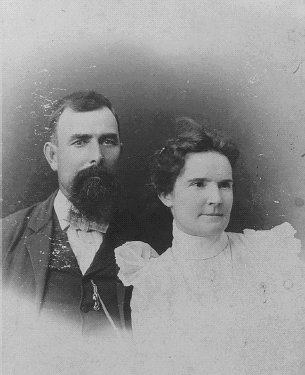
C. Wright Mills's maternal grandparents: Braxton Bragg Wright, a cattle rancher whose family had been in America for several generations, and his wife, Elizabeth Gallagher Wright (Biggy), the daughter of immigrants from Leitrim County, Ireland. Circa 1900. (Photo by Bolton and Mitchell, Laredo, Texas.)
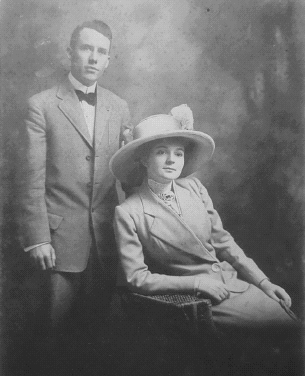
Mills's parents, Charles Grover Mills and Frances Ursula Wright, married in April 1912 when C. G. was twenty-two years old and Frances was eighteen. C. G. worked at a soda fountain before starting his career in the insurance business. Frances was a homemaker. (Mills family photo.)
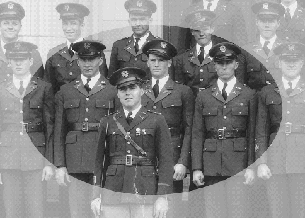
Mills at age eighteen (with the crooked cap, third from the left in the middle row) with fellow cadets at the Texas Agricultural and Mechanical College, 1934–35, before he transferred to the University of Texas at Austin. (Detail: Texas A & M class photo.)
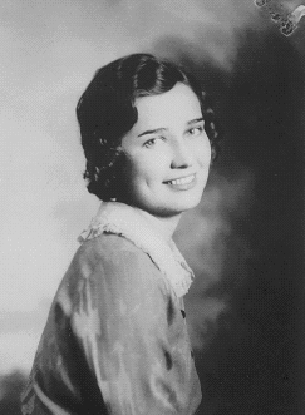
Dorothy Helen Smith (Freya) at age eighteen, in Anadarko, Oklahoma, 1931, about five years before she met Mills, whom she would marry in Austin, Texas, in 1937. (Photo courtesy of Freya James.)
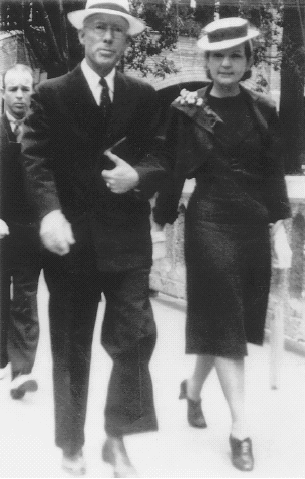
C. G. and Frances Mills in San Antonio, Texas, on June 1, 1940, when Mills was studying at the University of Wisconsin at Madison. (Mills family photo.)
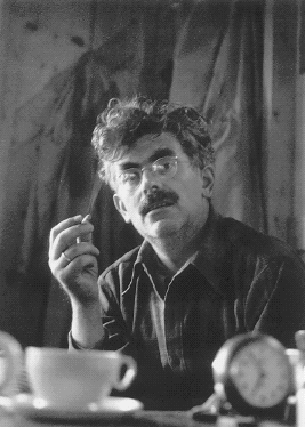
Hans Gerth, a German sociologist at the University of Wisconsin who had studied philosophy and social science at the University of Frankfurt. Gerth became Mills's collaborator on From Max Weber: Essays in Sociology(1946) and Character and Social Structure (1953). (Photo by C. Wright Mills.)
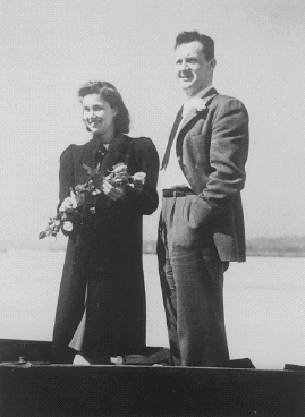
Freya and Mills in Madison, Wisconsin, in March 1941, when they remarried. (Photo courtesy Freya James.)
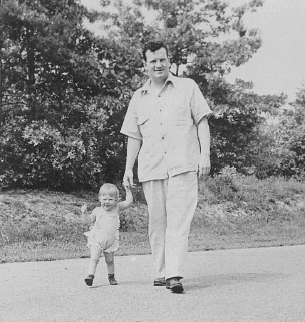
Mills and Pam in Greenbelt, Maryland, in 1944, when Mills was an associate professor of sociology at the University of Maryland. (Mills family photo.)
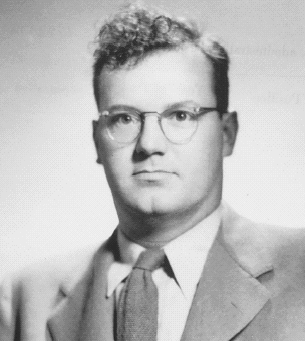
Mills at age twenty-eight in a photo he submitted with his application for a Guggenheim Foundation grant in late 1944. (Photo by Brooke Studio, Maryland.)
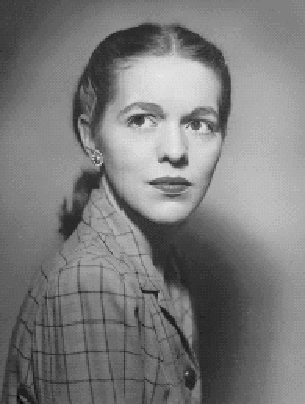
Ruth Harper at age twenty-four, in a photo she gave Mills several months before their marriage in July 1947. They met when Mills used some of his Guggenheim funding to hire her to do research for White Collar. (Photo by Blackstone Studios, New York, New York.)
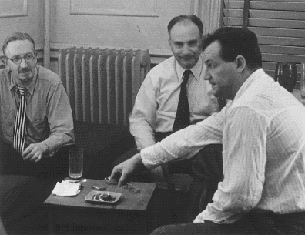
A gathering at the Millses' apartment in New York City in the late 1940s. From left to right: Dwight Macdonald, Leo Lowenthal, and Mills. (Photo by Ruth Mills.)
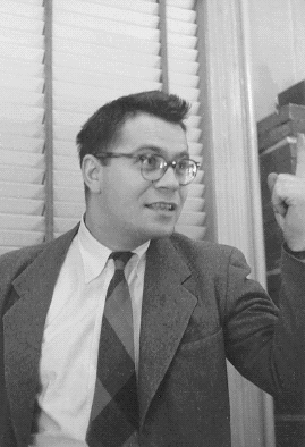
Richard Hofstadter at the Millses' apartment in the late 1940s. (Photo by C. Wright Mills.)
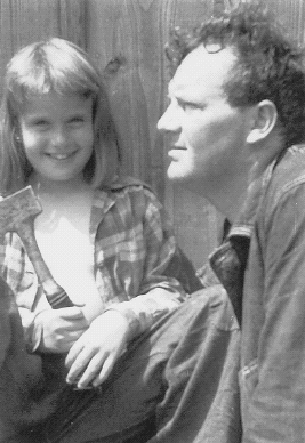
Mills and Pam in the summer of 1949 at Lake Temagami, Ontario, Canada. (Photo by Ruth Mills.)
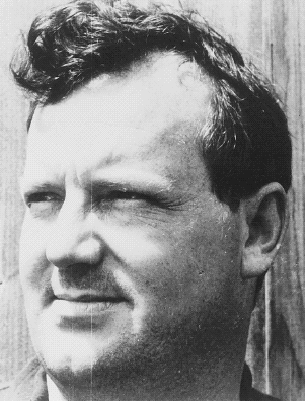
Mills at thirty-three or thirty-four years of age, as shown on the jacket of White Collar.(Photo by Ruth Mills.)
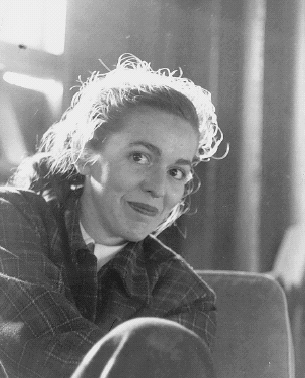
Ruth in the old farmhouse in Pomona, New York, that she and Mills were in the process of rebuilding in 1951. (Photo by C. Wright Mills.)
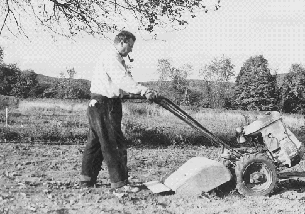
In 1952 Mills tried his hand at growing vegetables, including lettuce and corn. (Photo by Ruth Mills.)
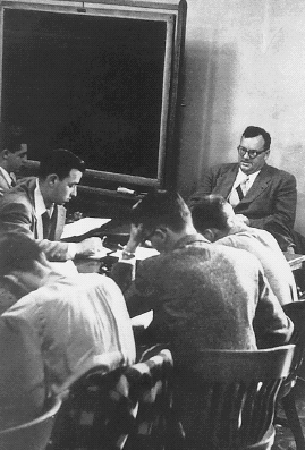
Mills, at the head of the table, teaching a seminar at Columbia College, where he taught from 1947 to 1962. (Only male students attended during that period.)
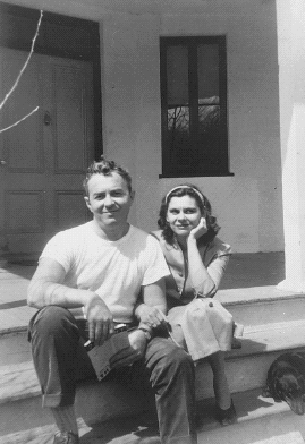
Harvey and Bette Beller Swados in the 1950s, on the porch of their home in Valley Cottage, Rockland County, New York, where Mills was a frequent visitor. Mills sought editorial advice on nearly all his books from Swados, who was a novelist, short-story writer, and essayist. (Swados family photo.)
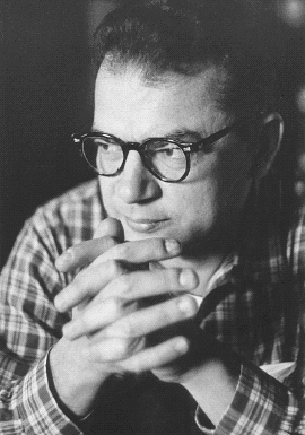
William Miller, a writer and historian, in the summer of 1958. Like Swados, Miller was a friend whose editorial help Mills repeatedly acknowledged. (Photo by C. Wright Mills.)
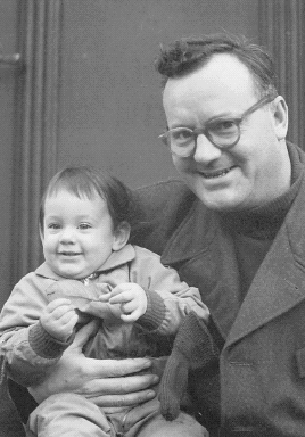
Mills and Katie in Copenhagen, Denmark, where Mills was a visiting professor at the University of Copenhagen. (Photo by Ruth Mills.)
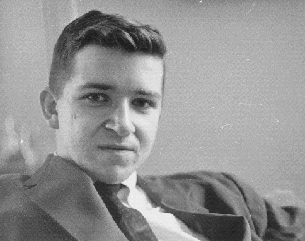
Dan Wakefield in New York City in 1958. Mills took this photo for the jacket of Wakefield's first book, Island in the City: The World of Spanish Harlem (1959).
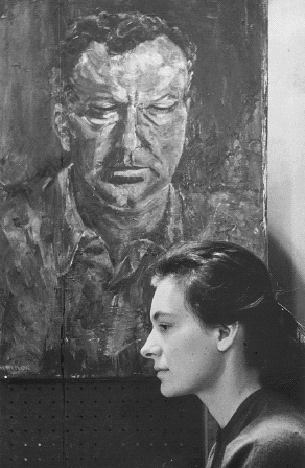
Yaroslava Surmach with her oil painting of Mills entitled The Survivor (circa 1958). (Photo by C. Wright Mills.)
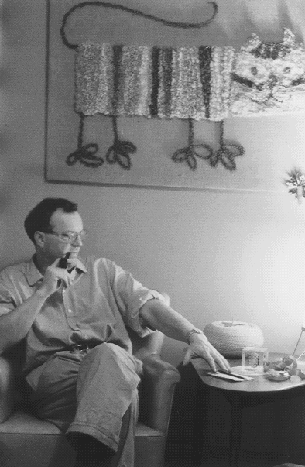
Mills with Yaroslava's wool-and-canvas wall hanging The Fey Tiger (1958). In a letter written in 1958, Mills said he wanted to write a play or novel entitled "Unmailed Letters to a Fey Tiger." (Photo by Yaroslava Mills.)
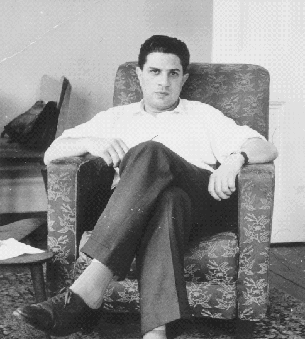
Ralph Miliband, at home in Hampstead, London, 1958 or 1959. In a letter to Miliband, Mills wrote, "I refuse to have any more of those pictures of you made up; I am a semiprofessional photographer, not a snap shooter; when next we meet I'll take a roll (36 shots). […] In the meantime you ought not to joke about your graven image." (Photo by C. Wright Mills.)
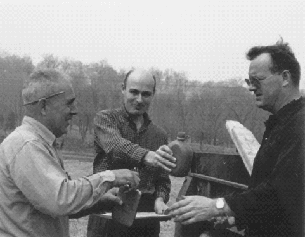
Mills on the construction site of his home in New York, spring 1959. From left to right: Charlie Linguanti, a construction contractor who was Mills's friend and former neighbor, William (Chappy) Diederich, the architect who carried out the Millses' basic design for the house, and Mills. (Photo by Yaroslava Mills.)
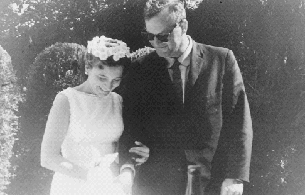
Yaroslava and Mills on their wedding day in June 1959. (Photo courtesy of Yaroslava Mills.)
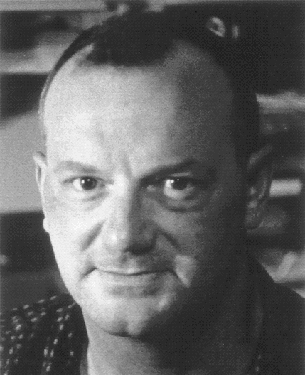
C. Wright Mills at home, circa fall 1959. (Photo by Yaroslava Mills.)
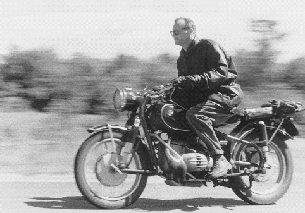
Mills commuted to Columbia College on his motorcycle, which he assembled himself in the BMW factory in Germany. (Photo by Yaroslava Mills.)
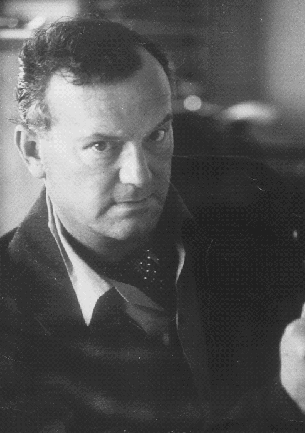
Mills in his study at home, circa 1959. (Photo by Yaroslava Mills.s)
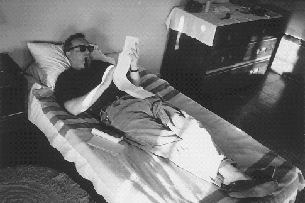
Mills in Cuernavaca, Mexico, in early 1960, when he taught a seminar at the University of Mexico. (Photo by Yaroslava Mills.)
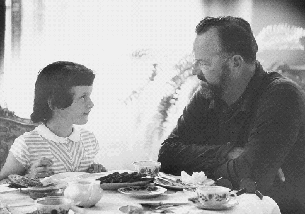
Mills and Katie in Warsaw, Poland, summer of 1961. (Photo by Yaroslava Mills.)
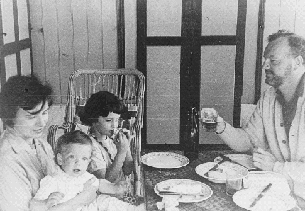
Yaroslava, Niki, Katie, and Mills at Niki's first birthday in June 1961 at a chalet in the Swiss Alps called La Violette. Here Mills worked on an update to Listen, Yankee (1960), as well as the manuscript for The Marxists (1962). (Photo courtesy of Yaroslava Mills.)
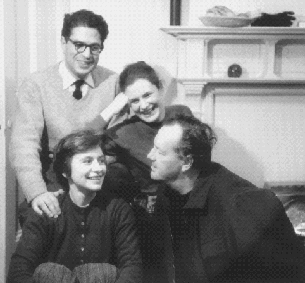
Yaroslava and Wright Mills (in front) with Ralph and Marion Miliband in London, fall 1961. (Time-release photo set up by Yaroslava Mills.)
